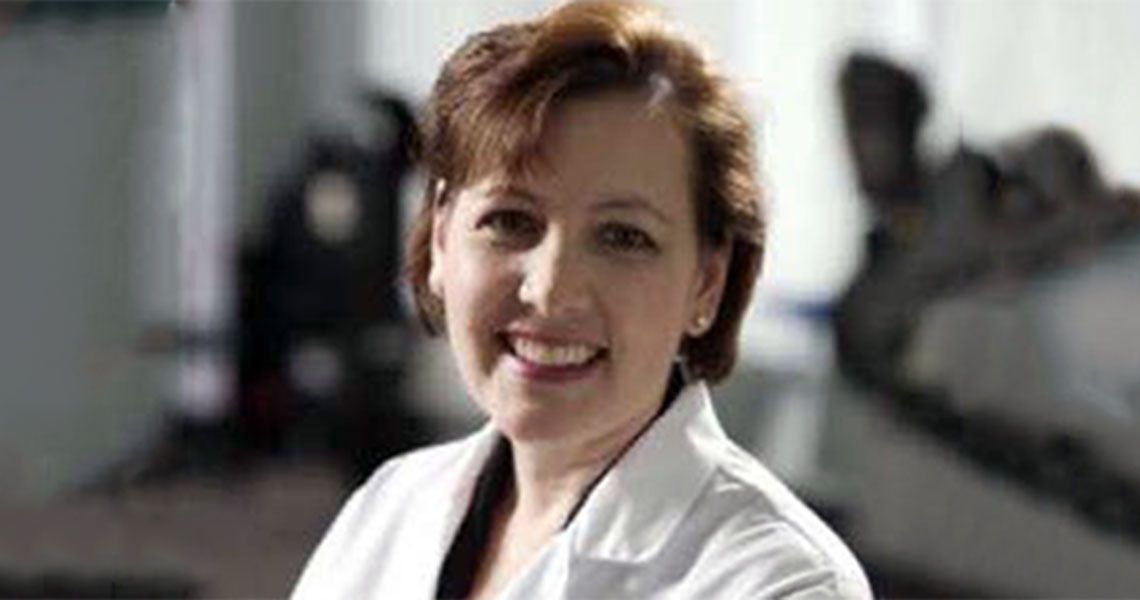In 2003, Julie Silver was practicing medicine at Harvard Medical School when she was diagnosed with cancer. Like many patients undergoing treatment for cancer, Silver became extremely sick. The pain was so unbearable she couldn’t return to work. Unwilling to accept her oncologist’s response that this quality of life might become her “new normal,” Silver decided to devote herself to helping other cancer survivors heal. Addressing the George Washington University medical community, Silver, M.D., assistant professor of physical medicine and rehabilitation at Harvard Medical School, discussed the importance of cancer rehabilitation, specifically its role in the cancer care continuum, during a conference hosted by the GW Cancer Institute (GWCI) with the support of the NIH Federal Credit Union (NIHFCU), Jan. 18. For Silver, oncology rehabilitation is crucial to cancer care because one in four cancer survivors suffer from physical health-related quality of life problems due to the late effects of treatment and one in 10 due to emotional complaints. “The burden of treatment and the burden of the disease physically are very high and these survivors are really struggling to resume their lives,” added Silver.
Seeking to explain what cancer rehabilitation is, Silver explained what it’s not. “It’s not an exercise class or nutrition, which is important but not rehab. It’s not massage or yoga, which is integrative medicine, not cancer rehab.” Cancer rehabilitation, according to Silver, is about standardizing your training, offering evidence-based care, implementing protocols, and tracing your outcomes.
Impairment-driven cancer rehabilitation care, Silver stressed, is very different from general exercise and wellness. The best way to think about impairment-driven cancer rehabilitation is to think about someone who has suffered a stroke. “If someone has a stroke and they are experiencing problems, you probably won’t refer right away to a yoga class or to a wellness program,” said Silver. “Instead, you would figure out what impairments they have and then those impairments would be treated by someone who specializes in rehabilitation medicine like an occupational or physical therapist. After the patient’s impairments were treated, you would then hand that patient off to a fitness class or wellness program.”
According to Silver, 65 to 90 percent of cancer patients need some degree of rehabilitation. Therefore, if an oncologist is seeing 1,000 new cancer patients a year, 650 to 900 of those patients should be sent to rehab.
In order to explain the benefits of evidence-based cancer rehabilitation and how it can be effectively incorporated into the cancer care continuum, Silver contrasted impairment and disability. To understand impairment, Silver suggested the audience think about an amputation. “Let’s say I have a below the knee amputation, my leg is missing, that’s a significant impairment, it’s not going to change,” said Silver. “Could my level of disability change if my impairment doesn’t? If I got a prosthesis I could walk, decreasing my disability, yet my impairment hasn’t changed.” With the right resources and rehab, argued Silver, it is possible to significantly alter the degree of disability patients’ experience, even if you can’t change their impairment.
Going forward, Silver hopes that impairment-driven cancer rehabilitation will become the new standard of care and will be readily available to all survivors who need it. “Cancer rehabilitation is the next frontier in survivorship care,” she said.
NIHFCU recently partnered with GWCI’s Center for the Advancement of Cancer Survivorship, Navigation and Policy (CASNP) to support a five-event lecture series and an online training series that will reach approximately 500 health care providers, including program executives, clinicians, and students.



